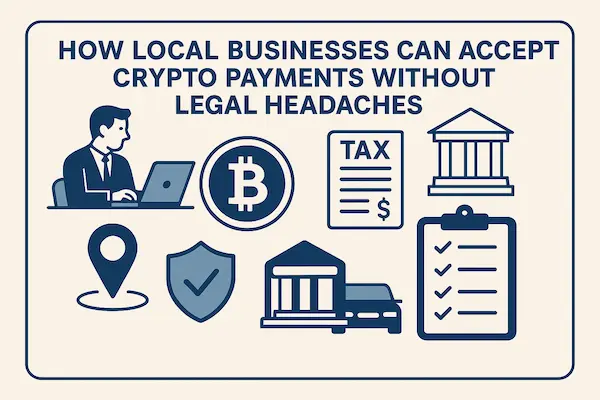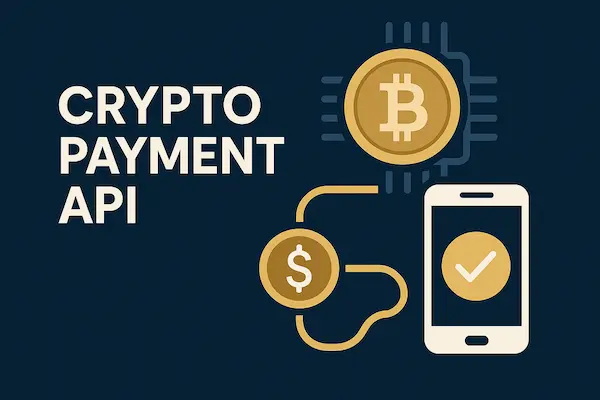Contents
1. Are Crypto Payments Anonymous? A Deep Dive into Cryptocurrency Privacy and Anonymity
The theme of privacy in cryptocurrencies is complicated, and a comprehensive review of their enigmas is essential. It studies the technicalities of blockchain technology, varying degrees of anonymity associated with different cryptocurrencies, as well as some possible threats and advantages to users. Understanding transaction tracking mechanisms will enable you to know how best to secure your personal information. In this in-depth analysis, the question “are crypto payments anonymous?” get the details here.

2. Is Bitcoin Anonymous? Understanding Bitcoin
While it’s true that Bitcoin offers a certain level of privacy, it’s important to note that it is not entirely anonymous. There are methods through which transactions can be traced, backed by advanced computer systems. This article explores how pseudonymity in Bitcoin differs from perfect anonymity. By understanding this distinction, users can better navigate privacy concerns when using Bitcoin (BTC).

Bitcoin’s Privacy Features
Privacy features of Bitcoin are often misunderstood, as transactions are recorded on a public blockchain that anyone can access. While users can enhance their privacy by creating new addresses, various techniques can still trace these transactions back to them. CoinJoin is one method that can help obscure transaction trails, though it is not foolproof. For those who wish to maintain some level of anonymity, understanding Bitcoin’s privacy features is essential.
Bitcoin and User Privacy
Bitcoin transactions are trackable, contrary to popular belief, and this can endanger anonymity. The piece discusses approaches such as employing mixing services and privacy-oriented wallets to improve confidentiality. It is important for individuals who prioritize their financial secrecy while utilizing Bitcoin to comprehend these considerations.
3. Is Any Crypto Truly Anonymous?
There are some coins like Monero and Zcash are able to hide transaction details through privacy features. It discusses the difficulties and restrictions that come about with complete anonymity in digital currency. Users interested in maximum privacy have to understand this deeply.

4. The Role of Blockchain Analysis
Analyzing the blockchain is a key mechanism for diminishing crypto privacy by identifying patterns across transactions and tracing them. It uses advanced algorithms and data analytics to strip away anonymity, linking users to real-life identities. This is essential for ensuring regulatory compliance and combating illegal activities such as money laundering and fraud.
5. Enhancing Privacy: Techniques and Tools
Improving privacy in cryptocurrency space includes employing zero-knowledge proofs among other ways that allow some types of transactions to be authentic without exposing secrets. There are other ways such as CoinJoin or mixers that mask the paths that transactions take by merging together several payments into one transaction making it impossible to find the funds’ sources individually. Also, privacy-centric cryptocurrencies like Monero and Zcash apply sophisticated encryption techniques that guarantee users’ anonymity and confidentiality of their transactions.
Coin Mixing
In cryptocurrency, a method called coin mixing is employed to increase both anonymity and privacy by merging several transactions so as to make it difficult to trace where the money is coming from and going to. It does this through a combination of user’s funds that are then reallocated in such a way as to hide their transaction histories. This procedure serves as a shield for people’s monetary details against any tracking attempts in the digital coin industry.

Privacy-Focused Wallets
The digital currencies that are privacy-oriented have been perfected especially for the sake of making it possible for their users to remain anonymous. In order to hide out the details about public exchanges most of these wallets contain coin mixing, stealth addresses, as well as zero knowledge proofs. Unlike typical crypto wallets they provide enhanced confidentiality and protection from prying eyes by concentrating on the aspect of private transactions.
Virtual Private Networks (VPNs)
With regards to anonymity enhancement in cryptocurrency, the significance of virtual private networks cannot be overemphasized. Users are able to hide their identity plus online behavior with the help of VPNs since they secure internet connections and obscure IP addresses which makes it hard for third parties to trace transactions back to people. This additional privacy is important for individuals who regard security and confidentiality as priorities when it comes to crypto dealings thereby ensuring that their financial dealings remain private and also safe from possible threats or surveillance.

Bitcoin ATMs
Bitcoin ATMs offer a convenient way for individuals to buy and sell Bitcoins using cash, without always requiring a traditional bank account, especially in transactions involving other cryptocurrencies. It’s important to note that these ATMs provide a level of anonymity in crypto transactions, as they typically require very little personal information compared to online exchanges. However, the degree of anonymity can vary among these devices, as some enforce stricter Know Your Customer (KYC) policies than others. This highlights the ongoing trade-off between privacy and regulatory compliance in the context of cryptocurrencies.

6. Conclusions
To conclude, the response to the question “Are Crypto Payments Anonymous?” shows that though cryptocurrencies like Bitcoin are somewhat private, they do not guarantee complete anonymity as a result of blockchain visibility and intensifying government inspection. However, strengthened secret coins and ways to maintain them may support some modicum of secrecy for users who should be cautious regarding changing laws and technologies. In the end, true anonymity in crypto transactions is achieved by walking between both tech-savvy sectors and legal domains.










